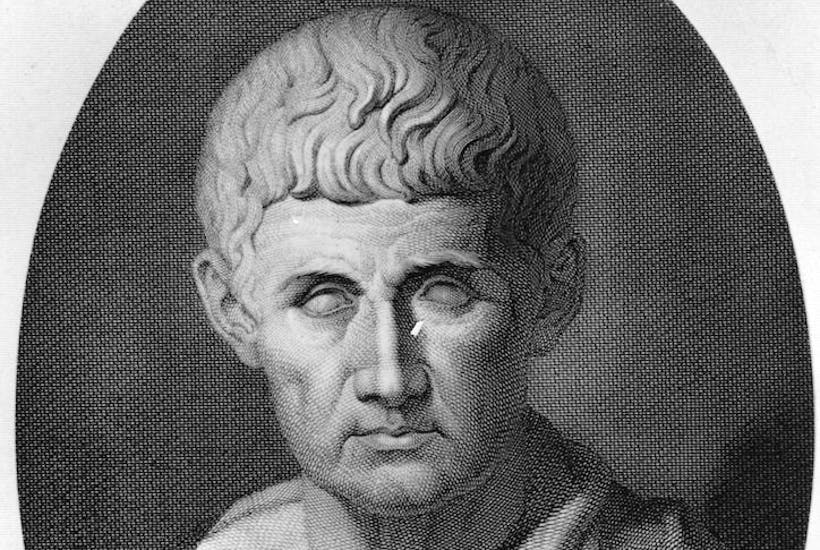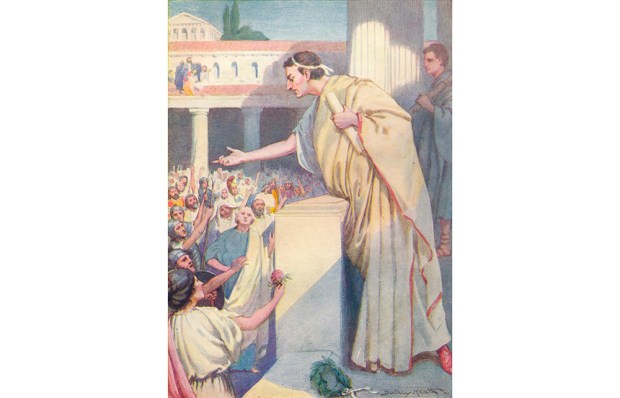Doctors have analysed how the mucus of a certain type of slug gives it protection against its being levered off a surface. From this, they have developed a new water-based gel for surgical repairs and wound healing. Aristotle would have been punching the air, had he not been too busy inventing logic, literary critical theory and almost everything else — in this case, biology.
In the introduction to his On the Parts of Animals, Aristotle (384-322 bc) contrasted the study of the heavens, which the ancients regarded as imperishable and eternal, with that of the earth. The former, he said, however scanty the evidence, gave most pleasure, in the same way that just half a glimpse of the person you loved was more delightful than a complete overview of anything else. But the real world, being immediately at hand, could be fully understood, and that counteracted ‘the loftier interest of celestial phenomena’.
Greeks were as judgmental about animals as they were about fellow humans, and Aristotle did agree that some animals were really rather unattractive. But he went out of his way to assert that all animals had to be studied if one was to understand why the animal kingdom was as it was, and the fact that some looked rather hideous was neither here nor there. So, he went on, ‘we must not recoil, like revolted children, from examining these humbler creatures, since every realm of nature is full of wonders’. Indeed, he continued, the different parts of man — blood, flesh, bones, organs and so on — were scarcely visions of delight, but no one would despise that study.
Aristotle ended his exhortation with a telling anecdote. The famous philosopher Heraclitus was warming himself in the kitchen when some strangers who had come to visit him turned up. But as they hesitated to go in, Heraclitus, it was said, told them not to be afraid to enter: there were gods even in kitchens. So with animals: there was no room for aversion in studying them, ‘since each and every one will reveal to us something natural and beautiful’.
And in the case of slugs, life-saving too.
Got something to add? Join the discussion and comment below.
Get 10 issues for just $10
Subscribe to The Spectator Australia today for the next 10 magazine issues, plus full online access, for just $10.
You might disagree with half of it, but you’ll enjoy reading all of it. Try your first month for free, then just $2 a week for the remainder of your first year.














Comments
Don't miss out
Join the conversation with other Spectator Australia readers. Subscribe to leave a comment.
SUBSCRIBEAlready a subscriber? Log in